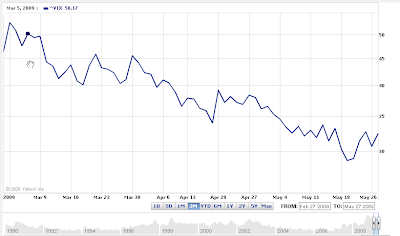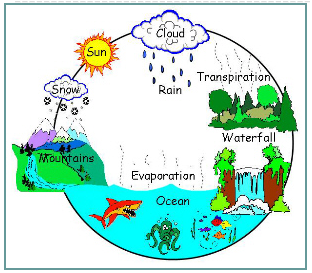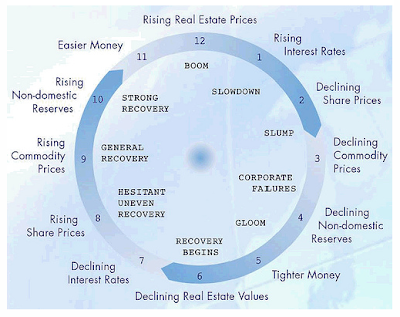Some of us are more disciplined than others. Shortly after we are born, we start to learn the rules of life. Some of these rules we had to learn the hard way, through trial and error. Others we learned from our parents. Learning from others in this way is often easier, however, we seem to do a better job of remembering the lessons we learn the hard way. As investors, we have a choice. We can learn the hard way and hope that we'll survive our lessons and not run out of money, or we can learn from the following three wise men.
Three wise men - Warren Buffett, Dennis Gartmen and Puggy Pearson - found very different methods to achieve financial success, but they all share a common trait - their success came by following a strict set of rules. In this article we'll show you nine rules that three wise investors live by.
The World’s Greatest Investor
Warren Buffett, the "Oracle of Omaha," is considered by many to be the greatest investor ever. He is also known for giving much of his $40 billion fortune to the Bill & Melinda Gates Foundation, which is dedicated to bringing innovations in health and learning. Buffett is primarily a value investor that closely follows Benjamin Graham's investing philosophy after having worked at Graham's firm, Graham-Newman.
Buffett has several excellent investing rules. You can read about many of them in his company's (Berkshire Hathaway) annual reports, which are an excellent source of investing knowledge.
Here are three of Buffett's rules:
1. Rule No.1: Never lose money. Rule No.2: Never forget rule No.1.
If you lose money on an investment, it will take a much greater return to just break even, let alone make additional money. Minimize your losses by finding quality companies that are temporarily selling at discounted prices. Then follow good capital management principles and maintain your trailing stops. Also, sitting on a losing trade uses up time, money and mental capital. If you find yourself in this situation, it is time to move on.
2. The stock market is designed to transfer money from the active to the patient.
The best returns come from those who wait for the best opportunity to show itself before making a commitment. Those who chase the current hot stock usually end up losing more than they gain. Remain active in your analysis, look for quality companies at discounted prices and be patient waiting for them to reach their discounted price before buying.
3. The most important quality for an investor is temperament, not intellect.
You need a temperament that neither derives great pleasure from being with the crowd or against it. Independent thinking and having confidence in what you believe is much more important than being the smartest person in the market. Most of the time, the best opportunities are found when everyone else has given up on the stock market. Over-confidence and emotion are the enemies of a high quality portfolio.
The Great Trader Gartman
In the October 1989 issue of Futures magazine, Dennis Gartman published 15 simple rules for trading. He is a successful trader who has experienced the gamut of trading from winning big to almost losing everything. Currently, he publishes The Gartman Letter, a daily publication for experienced investors and institutions.
Here are three of Gartman's best rules:
1. There is never one cockroach.
When you encounter a problem due to management malfeasance, expect many more to follow. Bad news often begets bad news. Should you encounter any hint of this kind of problem, avoid the stock and sell any shares you currently own.
2. In a bull market only be long. In a bear market only be short.
Approximately 60% of a stock's move is based on the overall move of the market, so go with the trend when investing or trading. As the saying goes, "The trend is your friend."
3. Don't make a trade until the fundamentals and technicals agree.
Fundamentals help to find quality companies that are selling at discounted prices. Technical analysis helps to determine when to buy, the exit target and where to set the trailing stop. A variation of this is to think like a fundamentalist and trade like a technician. When you understand the fundamental reasons that are driving the stock and the technicals confirm the fundamentals, then you can make the trade.
The Gambler
The wisdom of the late two-time champion world poker player Puggy Pearson offers our last set of rules to follow. "Only three things to gamblin'," Puggy once said, "knowing the 60/40 end of a proposition, money management and knowing yourself." Well, those rules apply to investors too.
Here are Pearson's all-encompassing rules:
1. Knowing the 60/40 end of a proposition
Understanding the odds of drawing a winning hand is essential to poker. The 60/40 bets are those that offer the best chance of winning given all the options available. If you only play hands that have these odds or better, the statistics are on your side.
As investors, we should strive to put the odds in our favor with every trade. Finding the best 60/40 opportunities takes time and research, as there are many ways to find good candidates. These can be identified through individual stock selection, top-down or bottom-up approaches, technical or fundamental analysis, value-based pricing, growth-oriented, sector-leaning or whatever approach works best for a particular investor. The point is that investors must be constantly working toward finding and recognizing opportunities as they present themselves. Once you have been dealt the right cards, it's time to take the next step.
2. Money Management
Managing money is an ongoing process. The first tenet is to minimize losses on each opportunity. Fortunately, investors do not have to ante up to play, as in poker, though investors must work hard to find good opportunities. Once you have a good hand, it is time to decide how much money to commit to the opportunity.
While much is written on this topic, let's keep it simple. Basically it is a risk-reward decision. The more money you commit, the greater the possible reward and the higher the risk of losing some of that money. However, if you do not play, then you cannot win.
Basically, when the best opportunities present themselves, it is usually wise to make a significant commitment. For good (but not great) opportunities, committing smaller amounts makes sense as the potential reward is less. As in poker, most of an investor's money is made in small increments with the occasional big win coming along every once in a while. This requires that an investor evaluate each opportunity compared to others that have shown themselves in the past. Experience is an excellent teacher. Finally, investors can use a stop-loss strategy to mitigate greater losses should their assessment of the opportunity prove to be wrong. Too bad gamblers don't have such a tool! 3. Knowing Yourself
The last gambling rule, knowing yourself, means doing everything you can to stick to your discipline. Everyone wants to get on with it to make the next trade, but if that opportunity does not fit within your measure of a good 60/40 opportunity, then you must force yourself to pass. While you will miss some good gains, this will also save you from some hefty losses. Following your discipline is essential for success as a gambler as well as an investor. You must be extraordinarily patient in your search for the right opportunities and then aggressively go after the best ones.
Conclusion
Each of these three wise men excels by following his rules. In this way, they have succeeded where many others have failed. While we might not be as wise as these three men, we can learn from the best.
http://www.investopedia.com/articles/06/threewisemen.asp
















